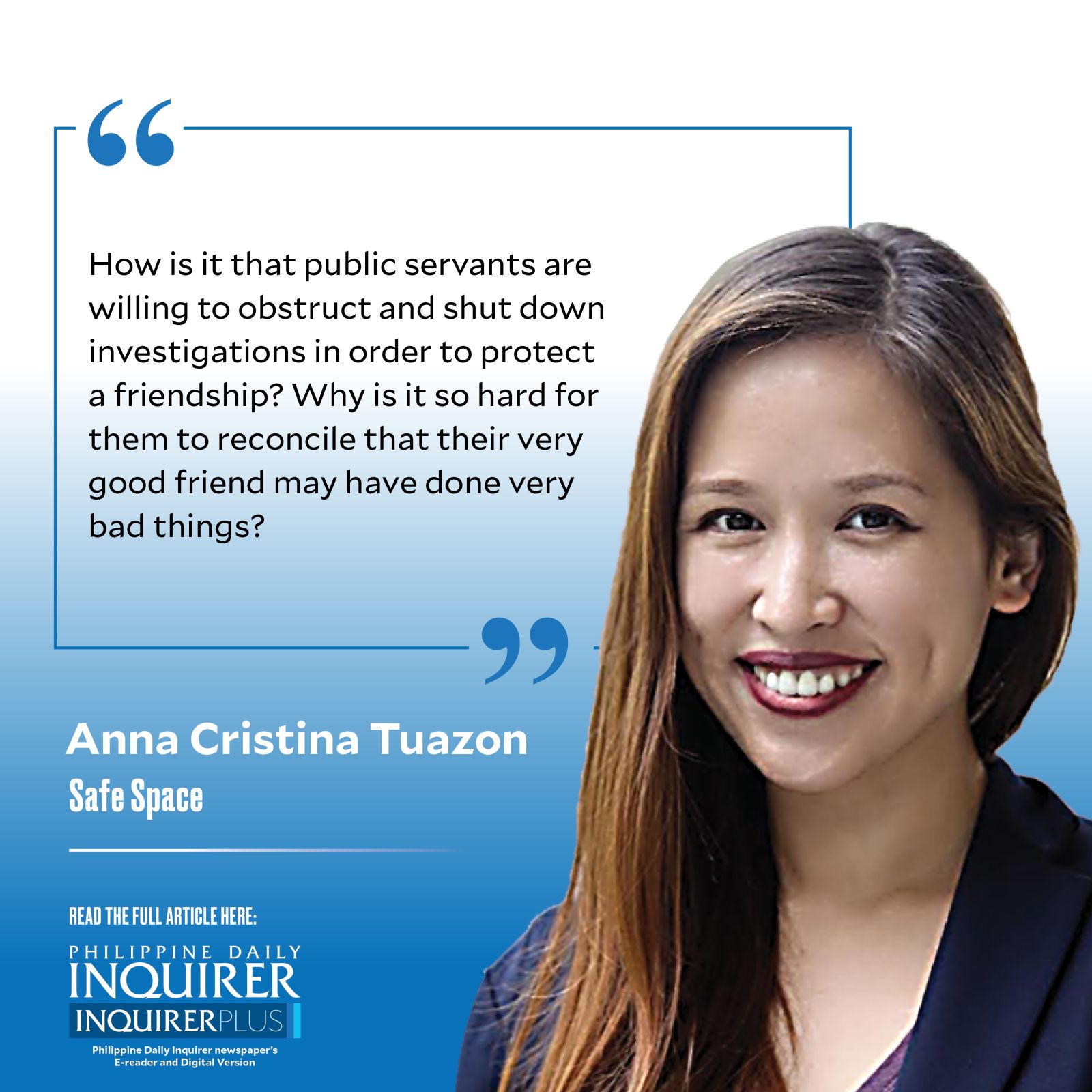When friendship gets in the way of due process

As pastor Apollo Quiboloy continues to snub subpoenas from both the Senate and House committee hearings regarding charges of conspiracy to engage in sex trafficking in the former and the suspension of his sect Kingdom of Jesus Christ’s Sonshine Media Network International (SMNI) franchise in the latter, both committees have cited him in contempt.
Moreover, Sen. Risa Hontiveros, the chair of the Senate committee on women, children, family relations, and gender equality, asked the Senate leadership to approve her motion to arrest Quiboloy. Sen. Robinhood Padilla, a professed friend of Quiboloy, sought to block the motion. While he got the support of Sen. Cynthia Villar, Sen. Imee Marcos, and Sen. Christopher “Bong” Go, this was not enough, and a show cause order was issued.
While perhaps for Padilla it was a disappointing parliamentary exercise, it did reveal some rather intimate truths. His stated reason for opposing the motion was “may utang na loob tayo rito (we owe him),” pertaining to Quiboloy’s supposed support in the armed struggle against communism. Thus, the senator seems to be seeking differential treatment for—in his own words—his “comrade.” His reasons, as a senator and public servant, seemed to have nothing to do with the best interest of the Filipino people or even related to the current investigations into serious allegations of sex trafficking.
Villar was just as candid about her reason for blocking the motion. She admitted that “kaibigan ko si Pastor Quiboloy. Mabait siya sa aming pamilya (Pastor Quiboloy is my friend. He is good to our family)” and expressed skepticism about the charge against him. Moreover, she explained that she couldn’t have him arrested as “you don’t do that to a friend.” Again, you have a public servant openly admitting that their legislative moves are based purely on friendship. Sen. Ronald “Bato” dela Rosa also gave his support to Quiboloy by saying he “cannot do anything disgusting” as he is a “most respected person.”
How is it that public servants are willing to obstruct and shut down investigations in order to protect a friendship? Why is it so hard for them to reconcile that their very good friend may have done very bad things?
In psychology, we have a basic concept called cognitive dissonance. This is the discomfort that occurs when we are faced with two conflicting beliefs, values, or behaviors. For them, due to their close ties with the pastor (and perhaps the default belief that all religious men are good), they believe that Quiboloy is a good man. As such, the thought that he has done terrible things contradicts this belief. There is mental distress when this happens. We like to think that our friends are good people. We wouldn’t be friends with them otherwise. And so when confronted with the possibility that they may have done immoral acts, it seems unthinkable. It would make us question our judgment of others. It would also make us question our own goodness, as our insistence on being a good friend now collides against being a good person.
Because of this discomfort, the temptation is to double-down on one belief instead of making space for both. In this instance, even without a completed investigation, they have already shut down the possibility that Quiboloy may have been involved in heinous crimes such as sex trafficking so as to avoid cognitive dissonance. Dela Rosa’s statement describes this dissonance perfectly: he “cannot do anything disgusting” because he is a “most respected person.”
In reality, however, these two seemingly incompatible beliefs can be true at the same time. Someone who has been good to us could have done bad things to others. Someone who is respected by the community could be doing disrespectful things in private. Someone who campaigned alongside you may also hold beliefs very much different from yours.
As long as we recognize cognitive dissonance for what it is, it can motivate us toward self-reflection and lead us to wisdom. However, not being able to tolerate the discomfort that comes with cognitive dissonance can lead us to defensive reactions and stunt our ability to handle ethical and moral dilemmas. It can either make our beliefs more rigid and impervious to reality, or worse: it can set us adrift from our moral center.
The path forward is to center our behaviors on all our values, not just on one. If we value both friendship and justice, then it is better to expend effort toward ensuring that due process is upheld. Obstructing investigations and exempting a friend from due process does not do your friend—or your country—any favors in the long run.
—————-
aatuazon@up.edu.ph
















